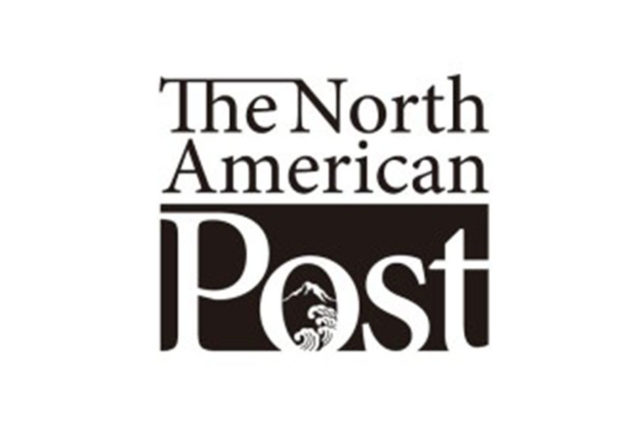By Shihou Sasaki
The North American Post
Local resident Megumi Tanaka recalled when driving on I-90 11 years ago, something that she had never before experienced. She suddenly lost her vision as the strong sunshine dazzled her eyes. She was soon diagnosed with retinitis pigmentosa and told by an eye doctor that her vision would be completely lost in 20 years.
Her life changed after the diagnosis. But Tanaka, who has lived in Seattle for 27 years, also said that she could find what she could not see 11 years ago. Tanaka said that the National Aeronautics and Space Administration (NASA) has once reported that only 4% of materials throughout the universe are visible by human beings.
“I had an opportunity to enjoy feeling the rest of the 96% that I have never recognized before,” Tanaka said.
Still, her vision has been declining since then. Tanaka said that her vision is 40% less than normal. Along with color blindness, she qualified as legally blind two years ago. Despite the situation, she is still running a trading business with Japan as she opens rooms at her Mercer Island home for Japanese students.
Tanaka said that technology innovation has been a tremendous help, including iPhone Siri and Amazon Echo’s intelligence personal assistant tools. She was provided a computer and software for blindness from the state service to help continue her business.
“I would have never thought this life possible 10 years ago,” she said, smiling. “Technology innovation lightens my blind life.”
Joining Washington Council of the Blind (WCB) in 2015, Tanaka said that the next steps the organization would advocate are how seniors can use the technology and how each maker and company develops blindness-friendly technology. At a conference for blindness in Japan in early December, she heard that the self-driving car should be available to those who live outside cities.
Tanaka, who is now a board member of the WCB Seattle Chapter, said that only a few members have joined from the minority community. She added that only one Nikkei friend in the same situation as she is Keiko Namekata, who has recently retired from the state’s Department of Service for the Blind.
With about 360 million blind in the United States, Tanaka believes that there must be more Japanese or Asians who have struggled with blindness.
“I want to reach out and share the information and opportunity,” she said.
Tanaka answered a few questions about WCB activities as the following.
Could you share what activities WCB has been working on?
“WCB is a volunteer organization for the blind to encourage opportunity, equity and independence through recognition in society, education and advocacy activities. We have regular meetings with each chapter and hold an annual state convention for three days.”
Could you describe the members and WCB?
“At a chapter meeting, we usually share any useful information for blindness if that is helpful to our daily life or work, including how to use public transportation and new smartphone applications. Members are blind, but the management has been very professional without issues.”
After joining WCB, what did you find out or change about yourself?
“I have been so inspired and motivated through active communications with other blind members, and I have been thinking about what I could do for them and others. They are very positive and enjoy their lives every day.”
You stated that WCB has only a few minorities. What do you want to do or share with the community?
“We should support blind people, especially those who immigrated or are minorities because they have been facing difficulties in finding resources, support organizations or meeting opportunities.
I want to outreach to as many blind people as possible so that hopefully the community will recognize the importance of support for the blind.”
More information about WCB can be found at <http://wcbinfo.org/>.
Photo on page 7: Megumi Tanaka at her home office.




